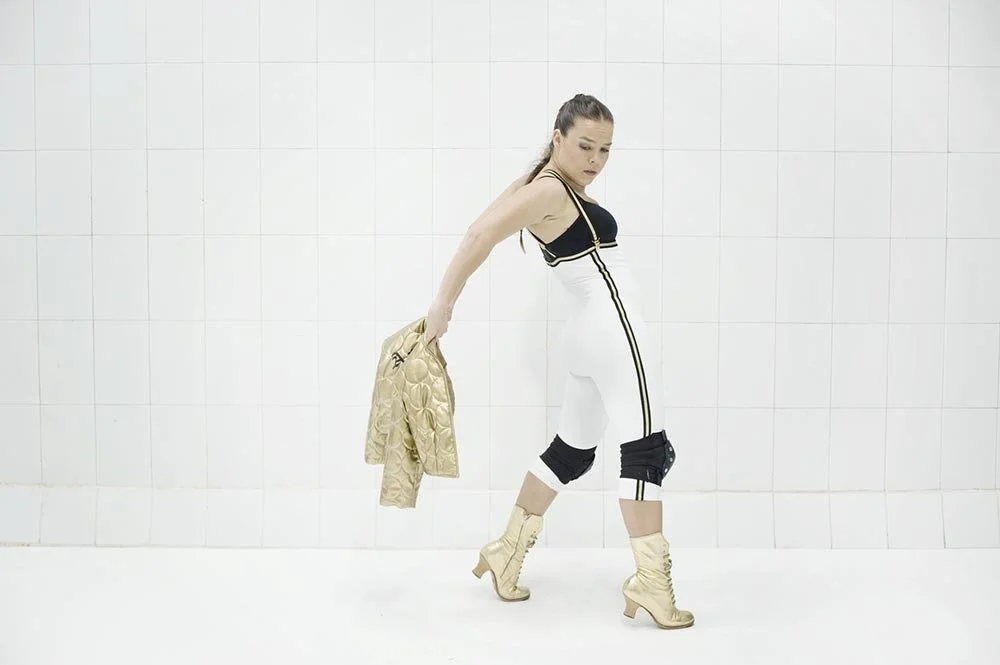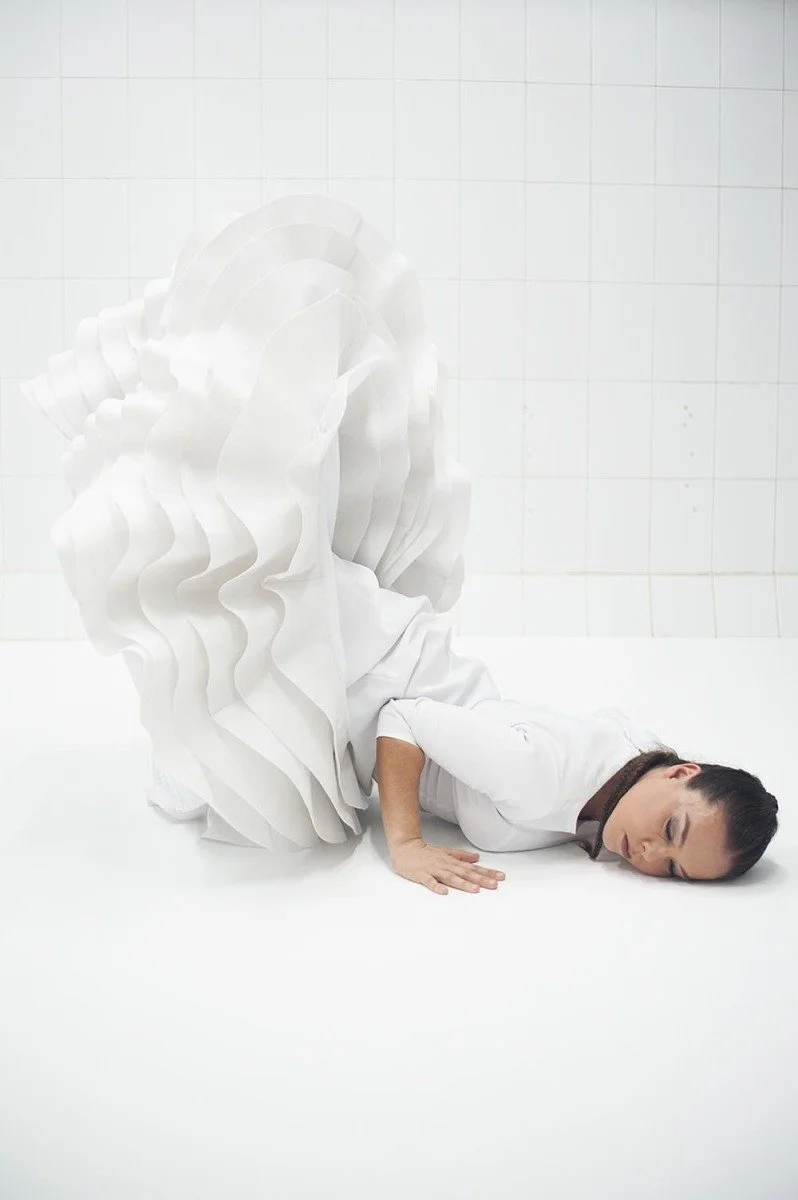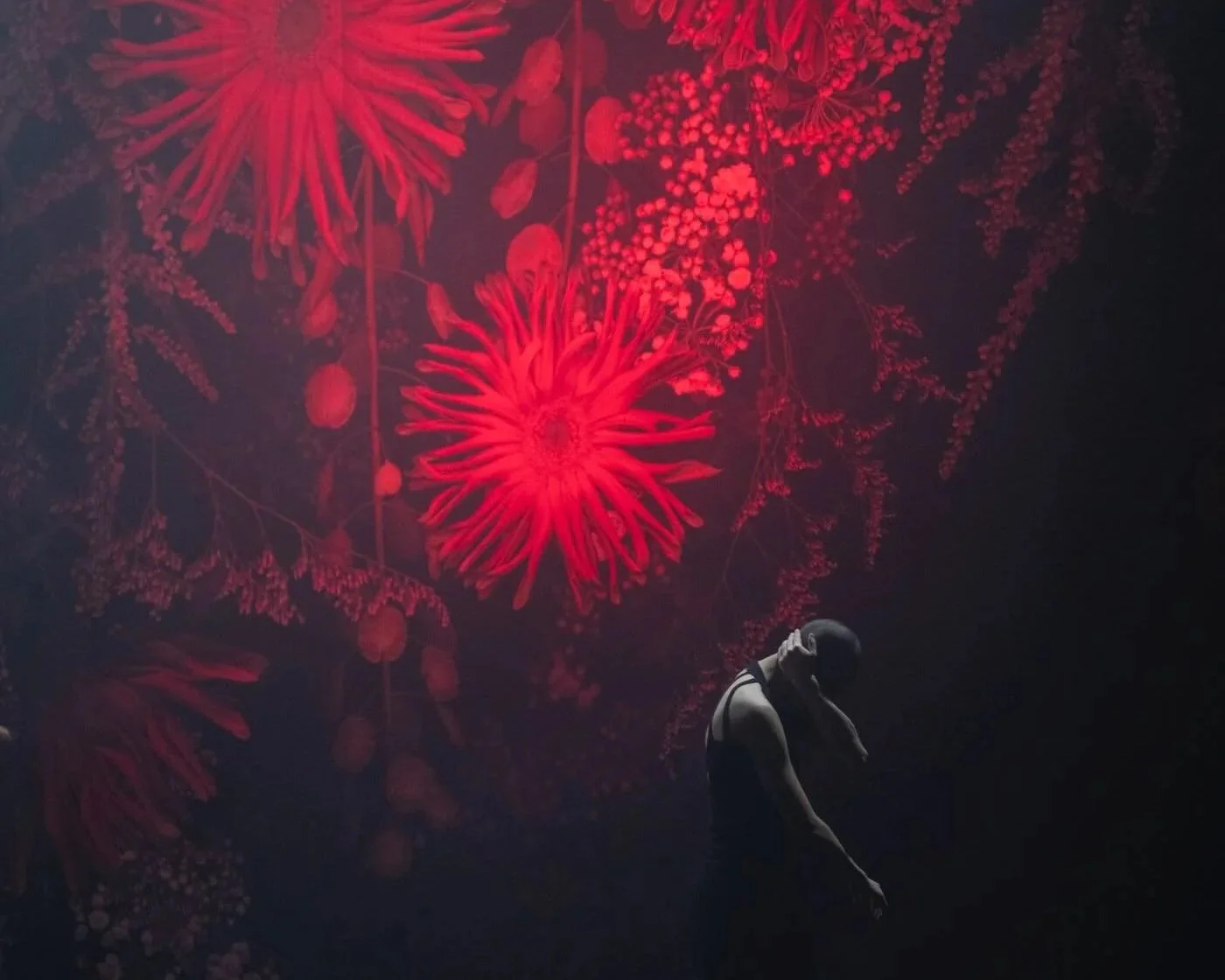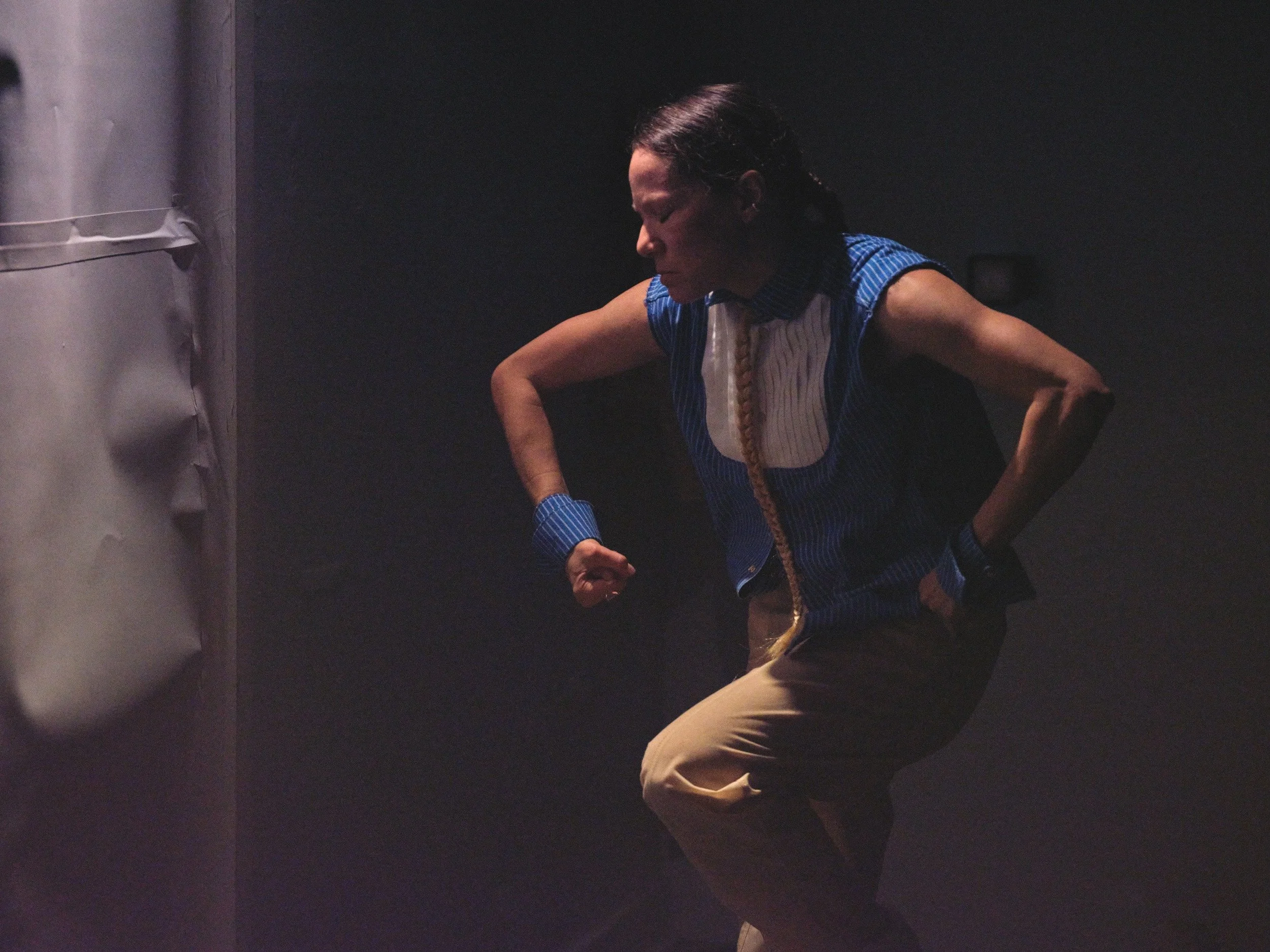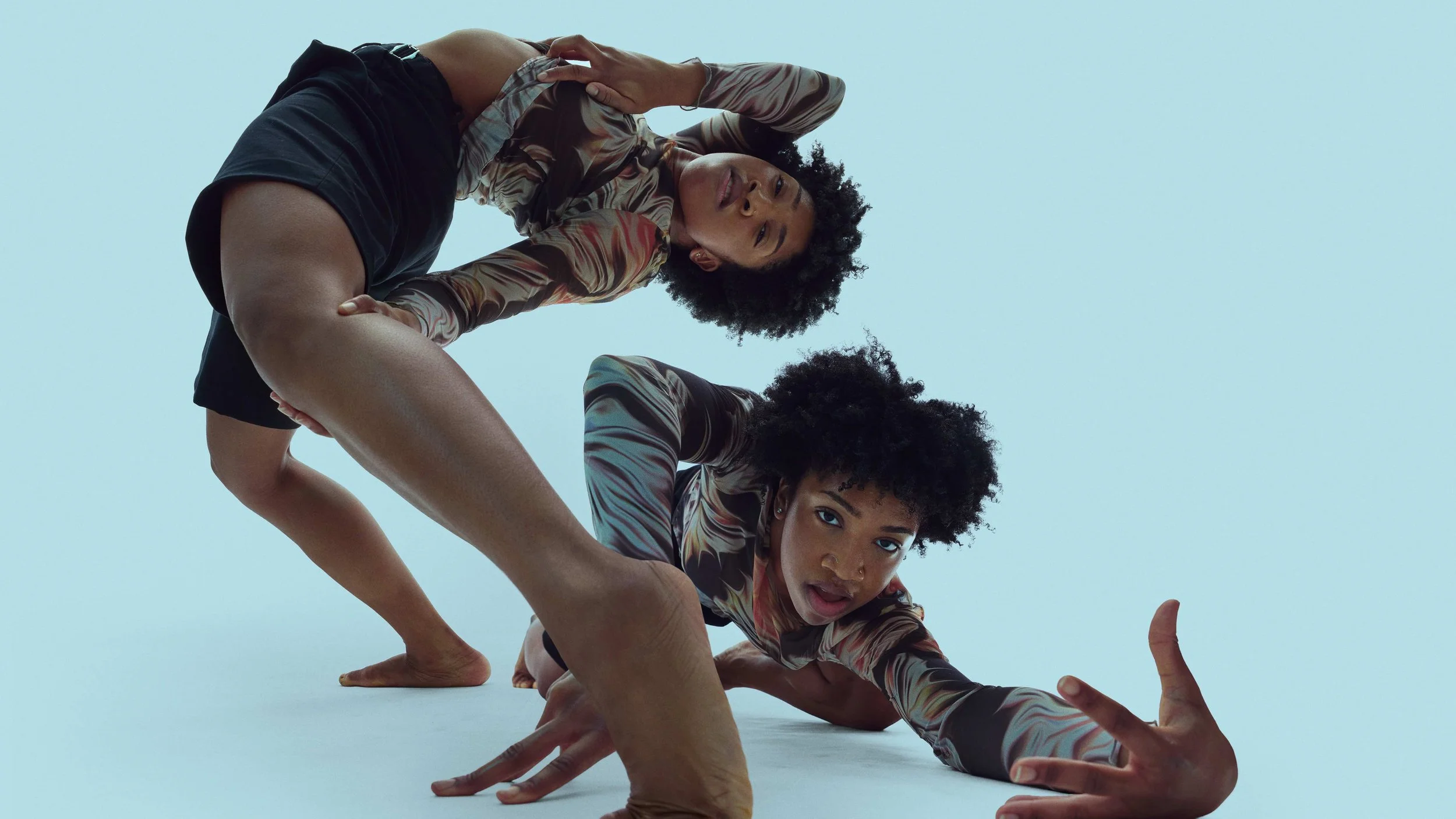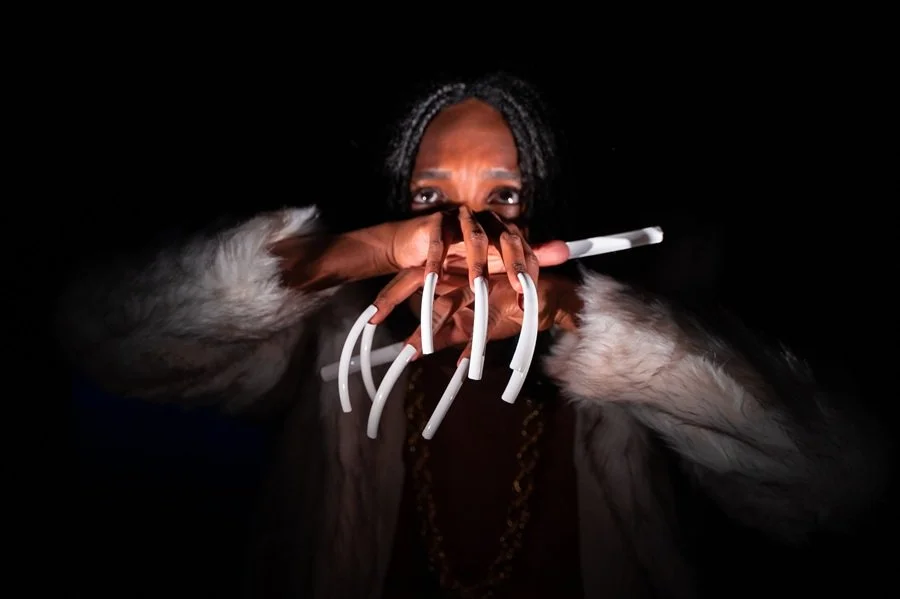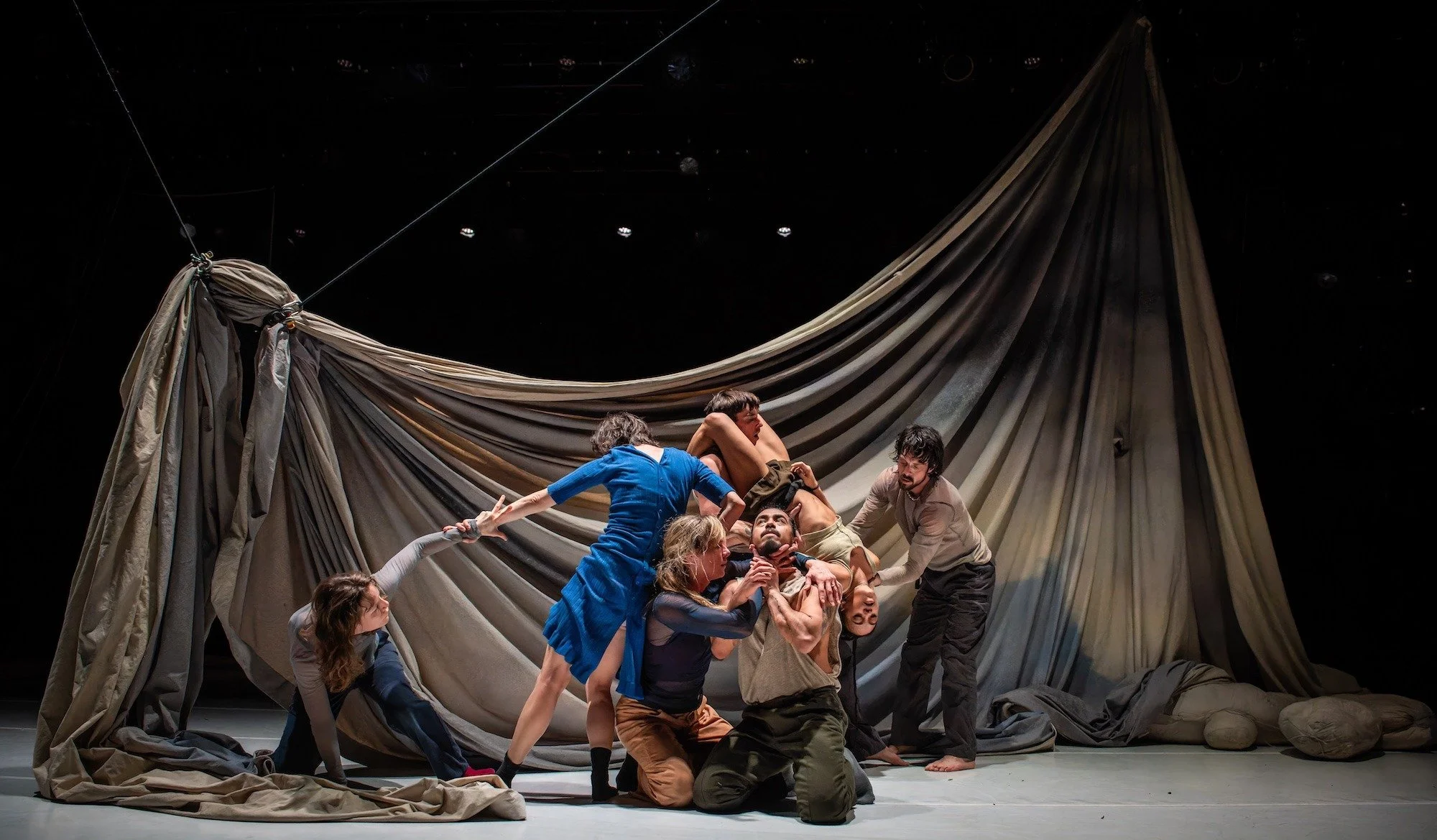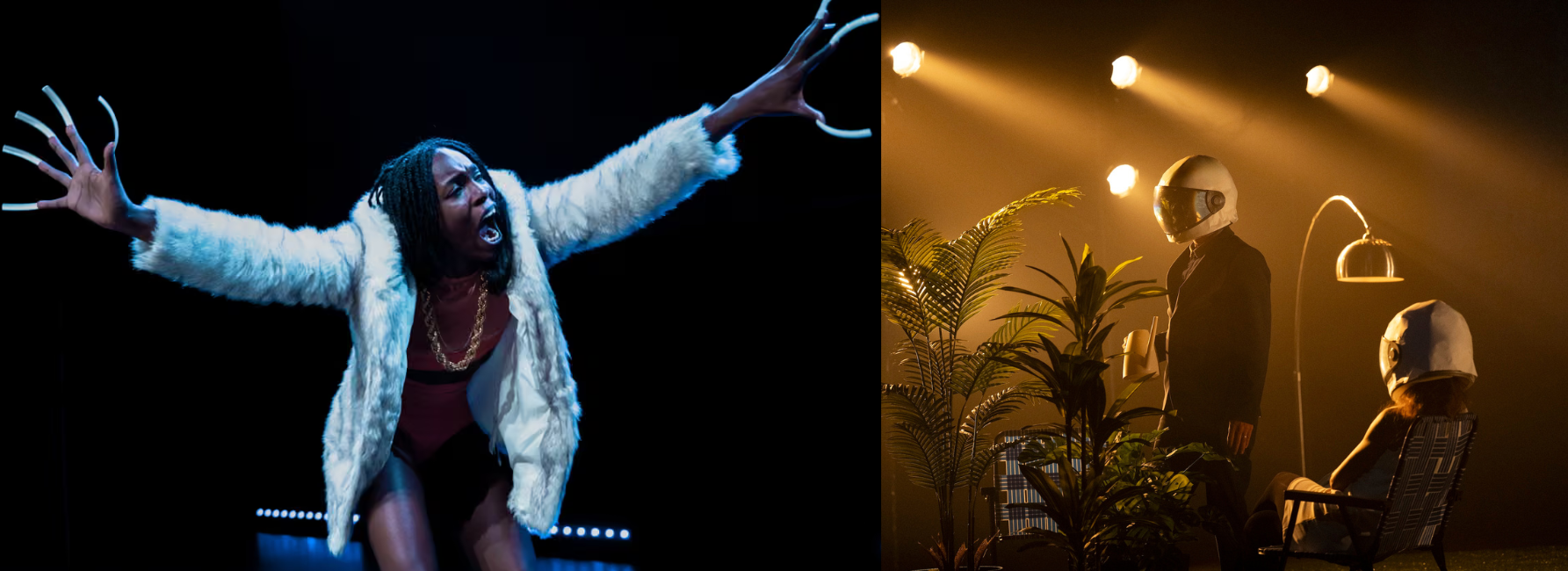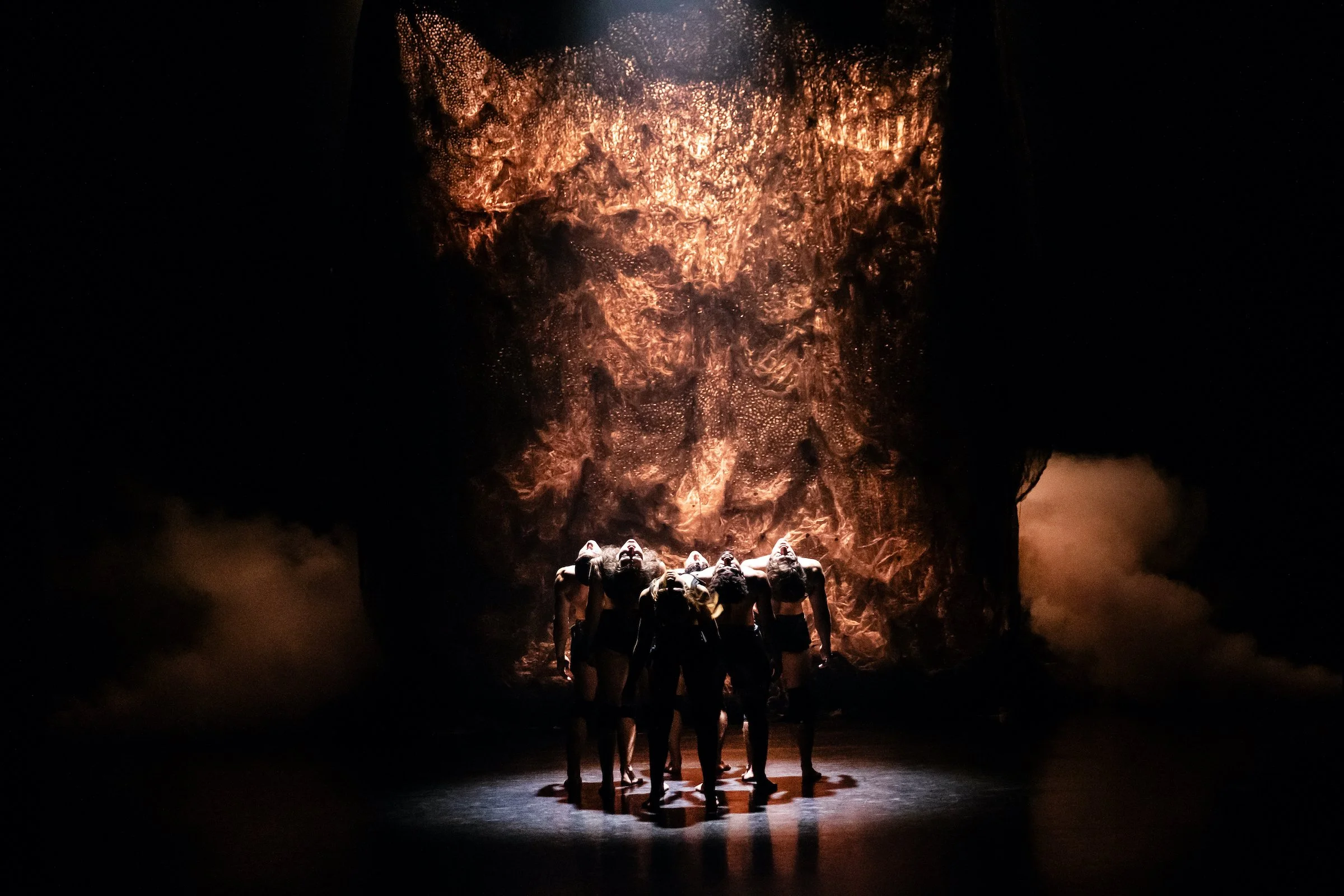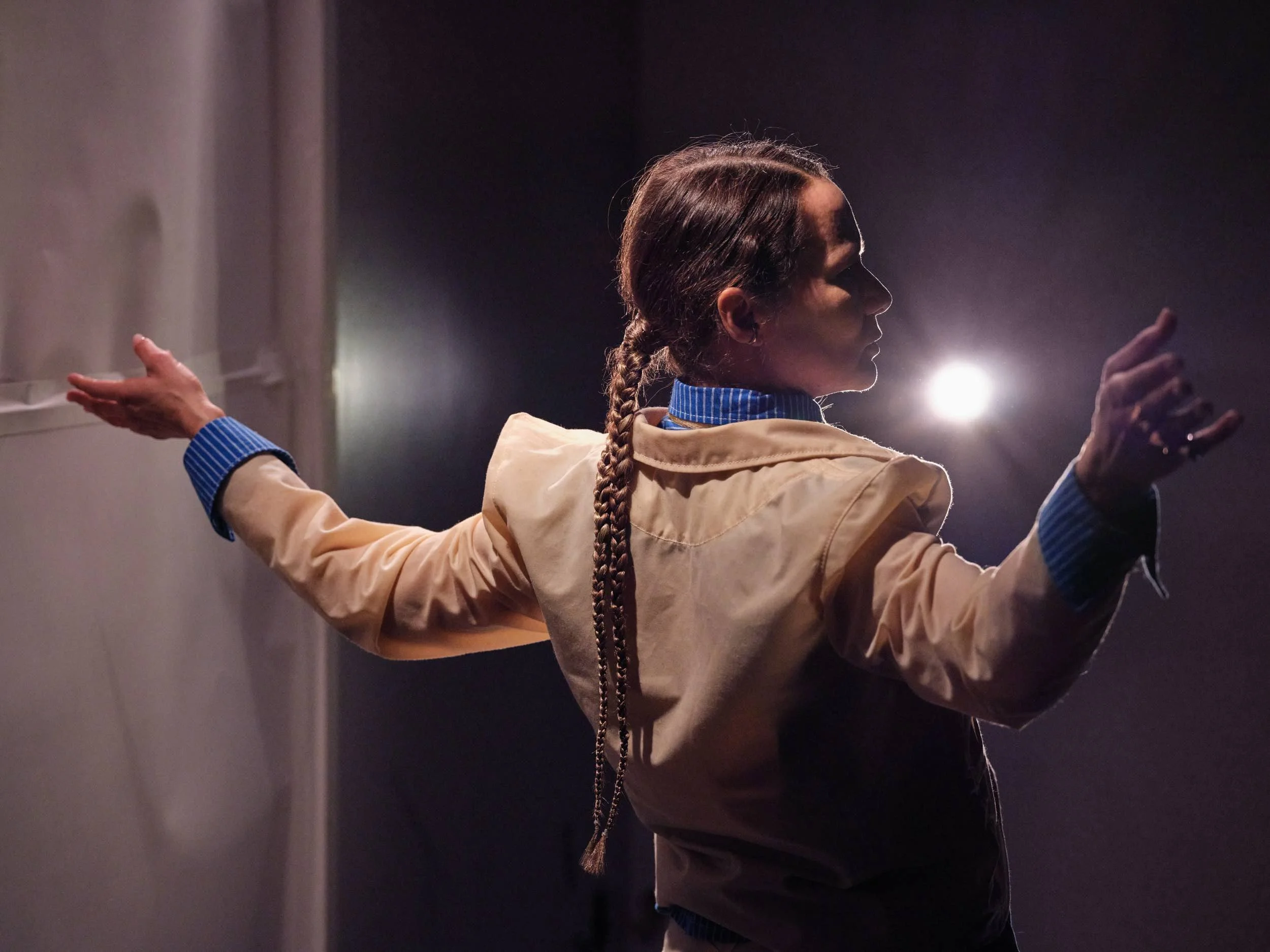For Spanish flamenco innovator Rocío Molina, fragility and stillness are just as potent as her powerhouse moves
With Caída del Cielo, dance star dives deep into her own soul, and vividly refreshes an art form
Caída del Cielo. Photo by Pablo Guidali
DanceHouse, SFU Woodward’s Cultural Programs, and Vancouver International Flamenco Festival present Compañía Rocío Molina’s Caída del Cielo from September 27 to 30 at the Fei and Milton Wong Experimental Theatre at SFU Goldcorp Centre of the Arts
AS SPAIN’S REIGNING FLAMENCO maverick Rocío Molina finally—after a long pandemic delay—gets set to make her West Coast debut, her reputation for dangerous, fem-punk energy, while well deserved, doesn’t begin to tell the whole story.
In her buzzed-about Caída del Cielo, traditional flamenco instrumentalists are backed by driving electric guitar. Its costumes include a fake-blood-soaked plastic bata de cola skirt, bondage harnesses, and kneepads. The show can be bawdy, fearless, and shocking, complete with pummelling footwork, flailing hair, and floor dives.
But when Stir reaches her on summer vacation at her family olive farm and creative hub, known as Bollulos de la Mitación, outside Seville, Spain, the calm and thoughtful bailora has a new perspective on the piece that translates as “Fallen From Heaven”.
“Looking at it in retrospect, I’ve learned that the power of Caída del Cielo is not in the physicality but in those moments of abandonment and silence and stillness—in what is fragile and vulnerable,” she offers to Stir over Zoom, the late-day Andalucian sun setting out a farmhouse window. (Local flamenco maven Rosario Ancer, whose Vancouver International Flamenco Festival is copresenting the show with DanceHouse and SFU Woodward’s Cultural Programs, is sharing the call to help with translation.) Watch the trailer below for a sense of how riveting Molina can be in the show’s quietest moments—how she can keep an entire theatre rapt with the slightest twist of a graceful hand.
Molina attributes her new appreciation for quiet power and inner strength to becoming a mother in 2019. It hasn’t tamed her fiery flamenco spirit; it’s just added conviction and depth to her practice.
“It was a huge change, the biggest in my life,” says the artist, whose daughter is spending these late summer weeks with her on the farm. “You learn to trust your body, your knowledge, and your wisdom. It helps the maximum effort that my work requires: I can attack it better—I’m stronger because of my experience as a mother. I have less time, so I have learned to do more with the time I have.”
She adds with a laugh that motherhood has also taught her to put up her hands and say, “No. Enough!” to work. That will come as a surprising shift to anyone who saw Impulso, the compelling documentary about the dancer that screened at VIFF in 2018. It featured a memorable scene of her mother tearfully worrying about the mental toll flamenco was taking on a daughter who gave so much of herself to viewers, exorcising her deepest emotions onstage.
“I think I understand much better now what she was talking about,” Molina says with a smile, admitting the emotional demands have always been more pummelling than the impressive physical feats of her shows.
Photo by Pablo Guidali
Molina’s mother has had a long time to adapt to her daughter’s fierce practice. Born in Andalusia near Màlaga in 1984, Molina was a flamenco prodigy who started dancing at just three. By 17, she had joined María Pagés’ dance company, then seriously honed her technique at Madrid’s flamenco conservatory. She was already reaching legendary status as a solo artist by 2008, when ballet icon Mikhaïl Baryshnikov famously dropped to his knees in front of her in giddy admiration after a New York performance of her Ojo viejo.
The star became known for subverting the traditional female clichés in flamenco—an approach Vancouver audiences will see in Caída here, whether that’s via a white ruffled skirt that rises like a strange mermaid tail, or fetishized matador garb.
But Caída del Cielo, first created nine years ago, also marked a major shift in her approach, Molina reveals.
“All my work is personal, autobiographical, but Caída is important because I was descending—it was like a fall into the darkness of my life, and I learned to come up again,” the dancer explains. “It was a fall into the most intimate and profound feelings inside me. But it was a good place, not a bad place; it was a place of learning in the deepest place within my soul. A beautiful place.”
The biblical “fall” from paradise resulted from the knowledge of good and evil—but it’s human nature to be drawn to the darkness, the forbidden fruit, she hints, suggesting that idea is at the core of the dreamlike vignettes the audience will witness.
“It became more interesting to abandon perfection and get the knowledge in the mistakes,” the artist says. “In the mistakes there's beauty. The perfect is boring.”
Switching gears to explain it another way, she adds: “Imagine a circle, and I was chasing myself—into something more powerful and dangerous. And then Caída del Cielo proved to be an escape where I pushed myself to the limits.”
If all this sounds dark, intense, and mysterious, those are definitely adjectives you could use to describe moments of Caída. But anyone who has seen Impulso, which documented the work’s creation, also knows it has been a positive experience for Molina—especially conjuring the piece with her four musicians, who share the stage with her throughout the work, building a kind of offbeat “conversation” with the dancer.
“There was so much joy in that collaboration and playing with the musicians,” she says. “They were, and are, an integral part of the work.”
Caída del Cielo is a trip into the deepest corners of Molina’s soul, through realms of rage, desire, absurdity, and occasionally, stillness. Molina lays herself bare. But make no mistake: this is an artist who still enjoys performing it to the max. “Sí,” Molina says, flashing a smile. “Mucho. I enjoy it muchissimo.”


